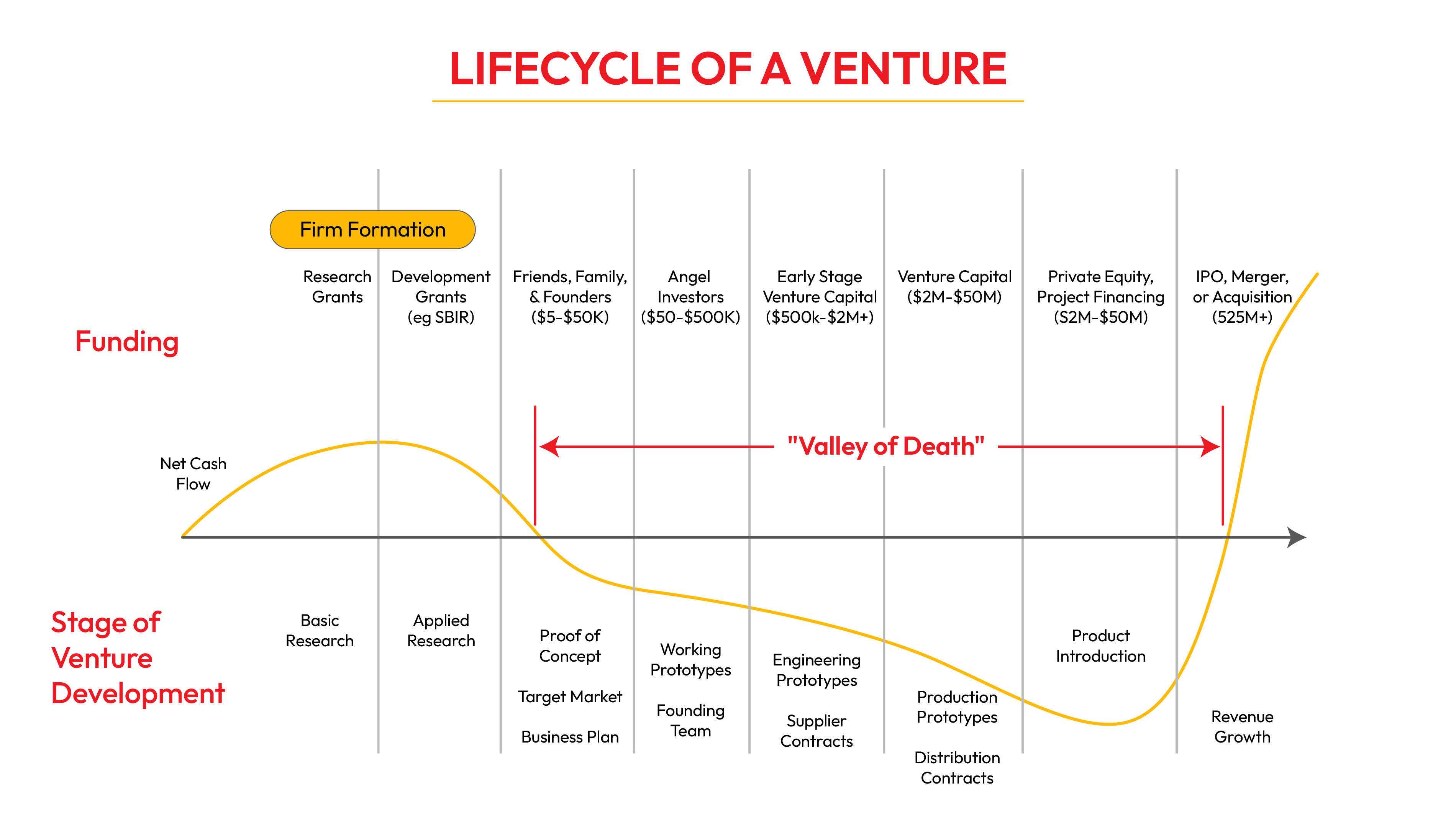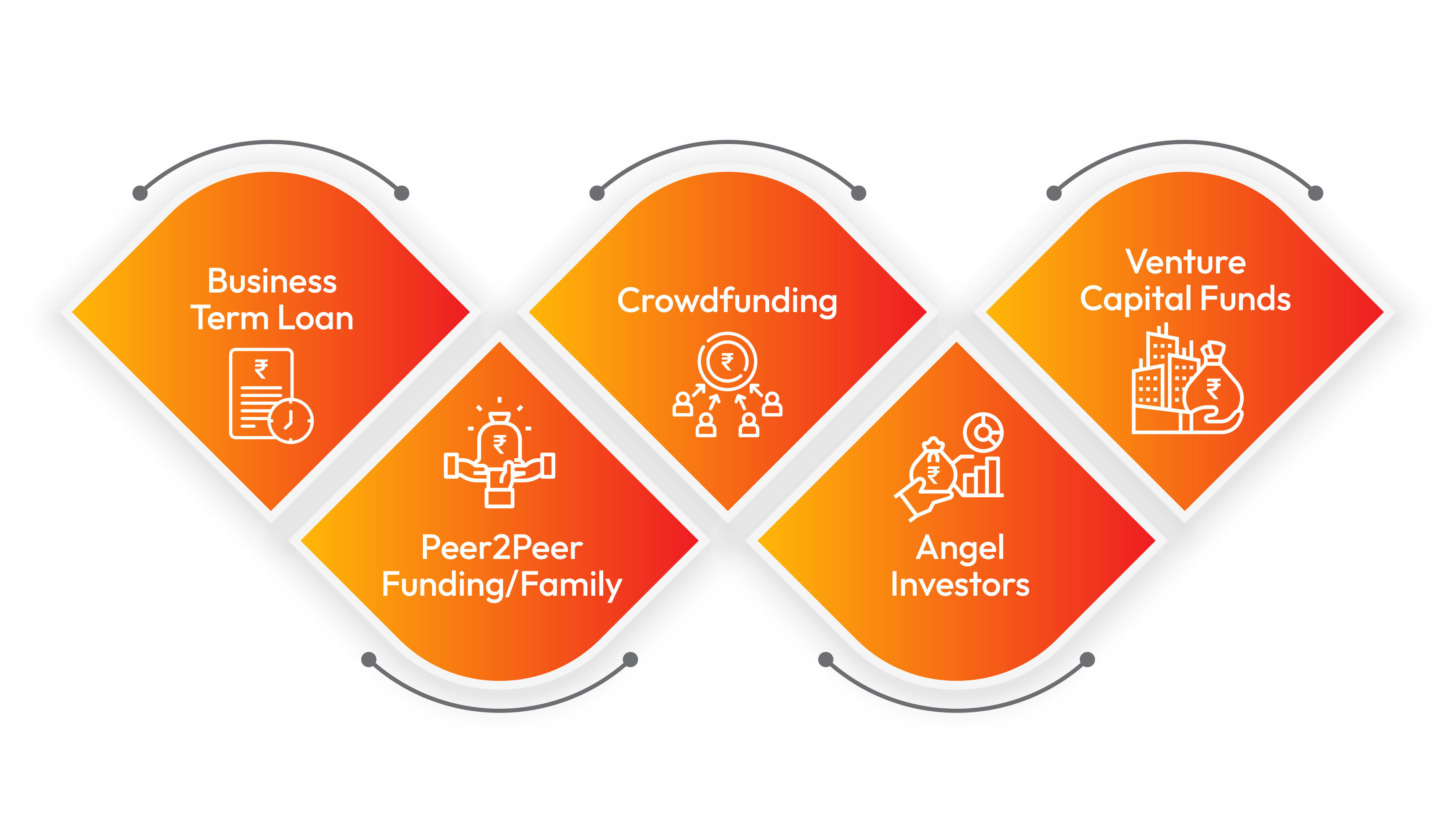Entrepreneurs play an impactful role in the economic development of a country. Their responsibility is not just limited it making their profits but also creating employment opportunities, driving innovation, developing new markets, and innovating new products etc. Entrepreneurs are the valuable assets of the country who initiate to address socio-economic problems and find solutions for them. Thus, it is an undeterred fact that Innovative and new Start-Ups foster prosperity, and jobs for aspiring youth and are an important component of dynamic economies. If you are a budding entrepreneur or setting forth to embark on a new venture, here is a quick guide to understanding the financing alternative for Start-Ups.
Meaning of Start-Up Financing
Start-Up financing can be defined as the capital that is used to fund a business venture. This funded amount can be utilised for various reasons such as launching the company, hiring a team, purchasing necessary tools, or buying real estate etc, to flourish the business. There are many forms of business financing, however, it is divided into two categories, dilutive and non-dilutive financing. Dilutive financing happens when there is an exchange of equity, or ownership in the company while non-dilutive financing allows the founder to retain full ownership.
If you are an entrepreneur, you must have heard about the “Death Valley curve”. It is a jargon, referring to the initial investment in a start-up, necessarily when the firm fails to generate sufficient revenues to meet the expenses and paralysing unless a new source of capital is raised. A new firm should maintain focus on formulating strategies to cross the valley of death. One of the major reasons behind the sudden death of Start-Up firms, in the initial stages of the business, is the shortage of funds.
Difference Between Financing and Funding
Start-up financing and start-up funding might appear to be the same and interchangeable terms but there is a slight difference. Start-up Financing is the process of funding through equity financing or debt financing. In this form of investment, the investors risk repayment, anticipating that after some time the company will be successful, and their owned equity will surpass the worth of invested capital. On the other hand, start-up funding is the capital that the business receives from the lender. Precisely, business financing is the method while business funding is the outcome.
Start-Up Financing Options
1. Debt Financing: It is an act of borrowing a sum of money, which is secured against a valuable and tangible asset. Debt Financing is optimised when a firm, looking for investment capital raises funds for working capital by selling debt instruments to investors. In return for the fund lent, the institutions become the creditor, and own interest on the money borrowed. The form of financing comes with defines repayment tenure. There are 3 ways to obtain debt financing: sell equity, take on debt or use a hybrid of the two. Equity stands for ownership stakes in the company and offers a claim for future earnings to the shareholder. It should be noted that if the company goes bankrupt, equity holders receive money at last.
2. Equity Financing: This type of financing to refers to the process of raising capital through the sale of shares. The money raised can be used for a short-term purpose such as bill payments or for a long-term project, promoting growth. By selling equity, the business owners sell a percentage of shares in return for funds. Equity financing can come from a variety of sources such as a friend/family, an investor company, or an IPO (initial public offering).
3. Government Grants: A government grant refers to a financial award that is accommodated by federal and local governments for supporting a business or business project. It is a payment transfer and is not inclusive of technological support, other financial loans or loan guarantees, interest rate subsidy or revenue sharing. The firm on the receiving end doesn’t necessarily have to repay the fund instead, is expected to use the fund for the stated purpose, serving a larger good. Government grants are applied for, and it is a competitive process.
Alternatives Available for Start-Up Financing
1. Business Term Loan
All aspiring and new entrepreneurs are quite aware of Business Term Loan and how it benefits a business. Under this financial alternative, the lender sends an amount that is to be paid with interest over an agreed period. After a firm gets approved for a loan, the repayment terms and rates are finalised. There are three types of business-term loans, Short Term loans, Medium term loans, and Long term loans. The application process varies from lender to lender, here is a list of a few documents that you may require.
- Personal and business information
- Personal and business bank statements
- Business financial statements
- Individual and business tax returns
- Personal and business credit score
2. Peer2Peer Funding/Family: People in close relation who are right there to financially help you irrespective of how successful your business idea seems to them. However, the loan obligation must be in writing and stated as a promissory note. Many small businesses with similar faith, come together to lend money and support each other’s endeavours.
3. Crowdfunding: One of the most common types of funding technique, raised using a small number of funds from a multitude of individuals to finance a new business venture. Crowdfunding helps in the easy accessibility of a wide network of people. The two traditional reasons to firm opt for crowdfunding are first, if a start-up is venturing into bringing a new product or service into the market, and second, if an organisation underwent any accident or emergency.
4. Angel Investors: Also known as, private investors, seed investors or angel funders, are the real-life angels for start-ups and new ventures. These angel investors are high-net-worth individuals who financially support small entrepreneurs in exchange for ownership equity in the company. Generally, the funds provided by investors are one-time support to carry out the company during a difficult time or to help the firm get off the ground.
5. Venture Capital Funds: The financial technique is known as pooled investment funds that manage the funds of investors who are interested in private equity stakes of a new venture. It enables start-ups to raise money before they have qualified for the operational phase or have started making profits. Venture capital funds, like other pooled investment funds, raise money from outside investors, before investing in any business. All the potential funders are given a prospectus of the fund required and when the investor commits to the amount, the final funding amount is set. Post the process the venture capital fund seeks private equity investment that potentially generates return for investors.
Common Start-Up Financing Challenges and Ways to Counter Them
Challenge 1: Building Scalable Business Model- Investors are typically interested in ventures that are scalable or ready to scale. The business model that you are presenting must depict the potential to increase profit with minimum expenditure.
Solution: Your business idea must be scalable, as higher scalable businesses are more investable. Build, (not copy) a business that is promising and try to outsource non-strategic aspects of business to reduce expenses.
Challenge 2: Searching for the Right Funding Option- There is a significant number of funding options available in the market, to increase the chances of getting funding there is a need t pick the correct funding alternative.
Solution: The best and least expensive funding option is, using your own saving. Many entrepreneurs run their start-ups while continuing their day jobs until their business is profitable. Yet another alternative is asking friends and family to invest in your business. But the professional relationship with the relatives must be driven by a written agreement.
Challenge 3: Deciding how much Funds to Raise- Irrespective of who the investor is, (angel, friend or bank) the firm must know how much fund is required to meet the needs of the business. More isn’t always better; the firm must keep in mind that the funds are in return for their equity or interest charges.
Solution: Prepare a business plan, and while you are creating it be specific and concrete. When you propose a plan, investors are more interested in checking, your forethoughts about spending their money. Make sure that you show a positive cash flow in your company, especially if you are a small business looking for expansion. Ask for a calculated sum of money as more funding can equate to increased pressure to scale up quickly.
How can Pay10 Help New Ventures?
Pay 10 is a payments solution in India that allows businesses to accept, process and disburse payments with its product suite. If you are looking for a digital payment solution for your brand, we can give the competitive advance that your business needs. Our ultra-professional payment platform with ready-to-go plugins, offers seamless digital transactions to merchants, issuers and network operators. With a holistic approach and high-end technology, we are among the trusted Payment aggregator in India.
We are compliant with top-of-the-line industry standards, including PCI DSS ISO 9001:2015, SAR (PAPG & Data localization) and VSCC and we intend to empower businesses of every sector and scale with easy and accessible Digital Payment Solutions.
Frequently Asked Questions
- Q1. What are the 3 primary ways of raising start-up funds?
- Three ways to raise working capital are Debt Financing, Equity Financing and Government Grants
- Q2. What is crowdfunding?
- Crowdfunding is the referred to the process of raising funds from a large number of people who each contribute a relatively small amount
- Q3. Who are Angel Investors?
- Also known as, private investors, seed investors or angel funders, are the real-life angels for start-ups and new ventures. These angel investors are high-net-worth individuals who financially support small entrepreneurs in exchange for ownership equity in the company.




